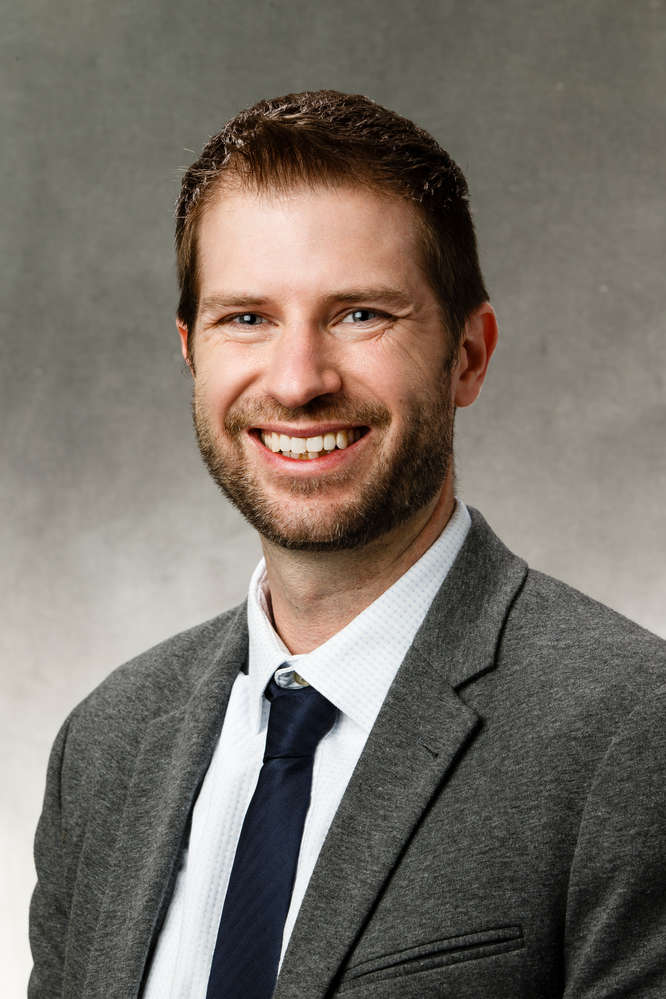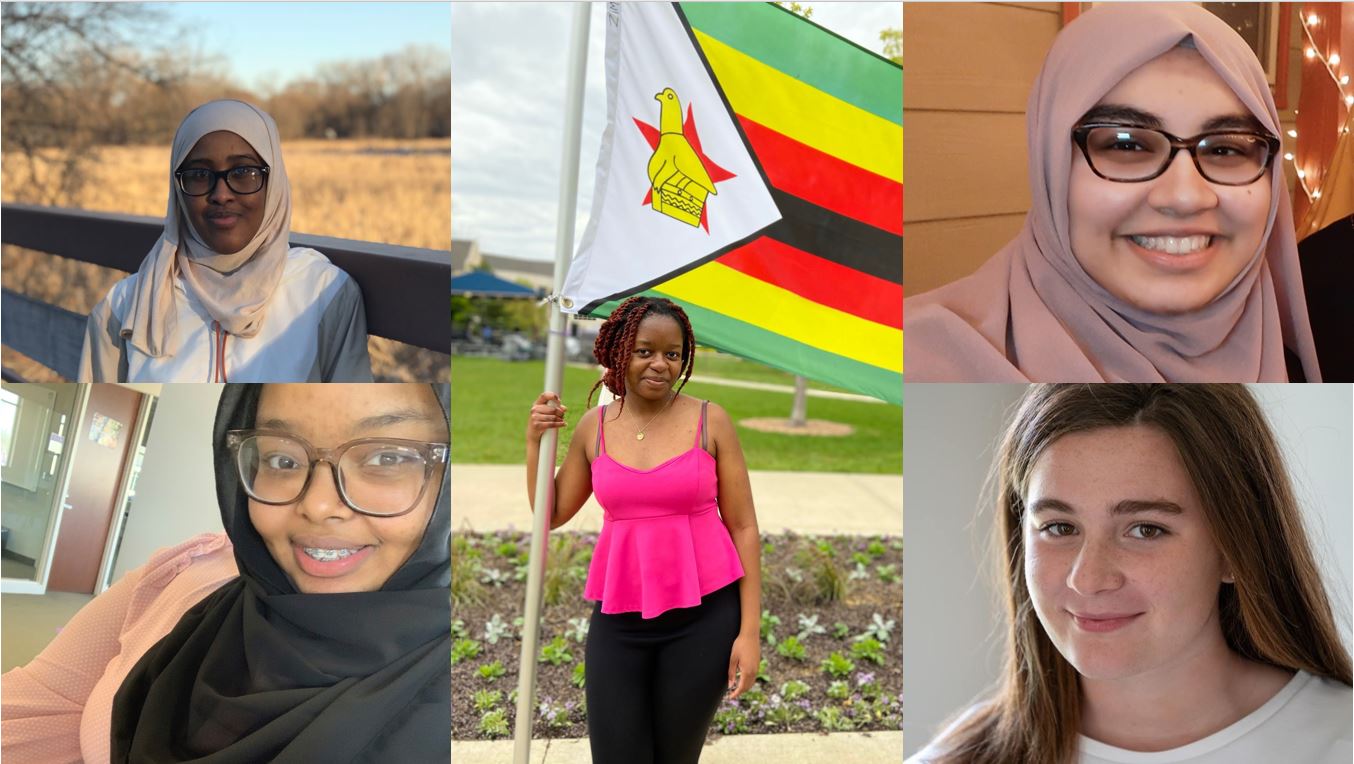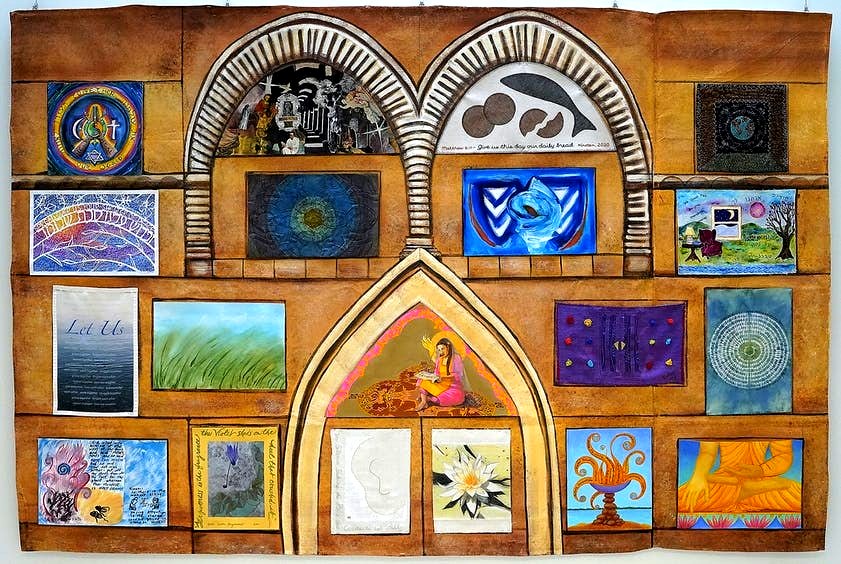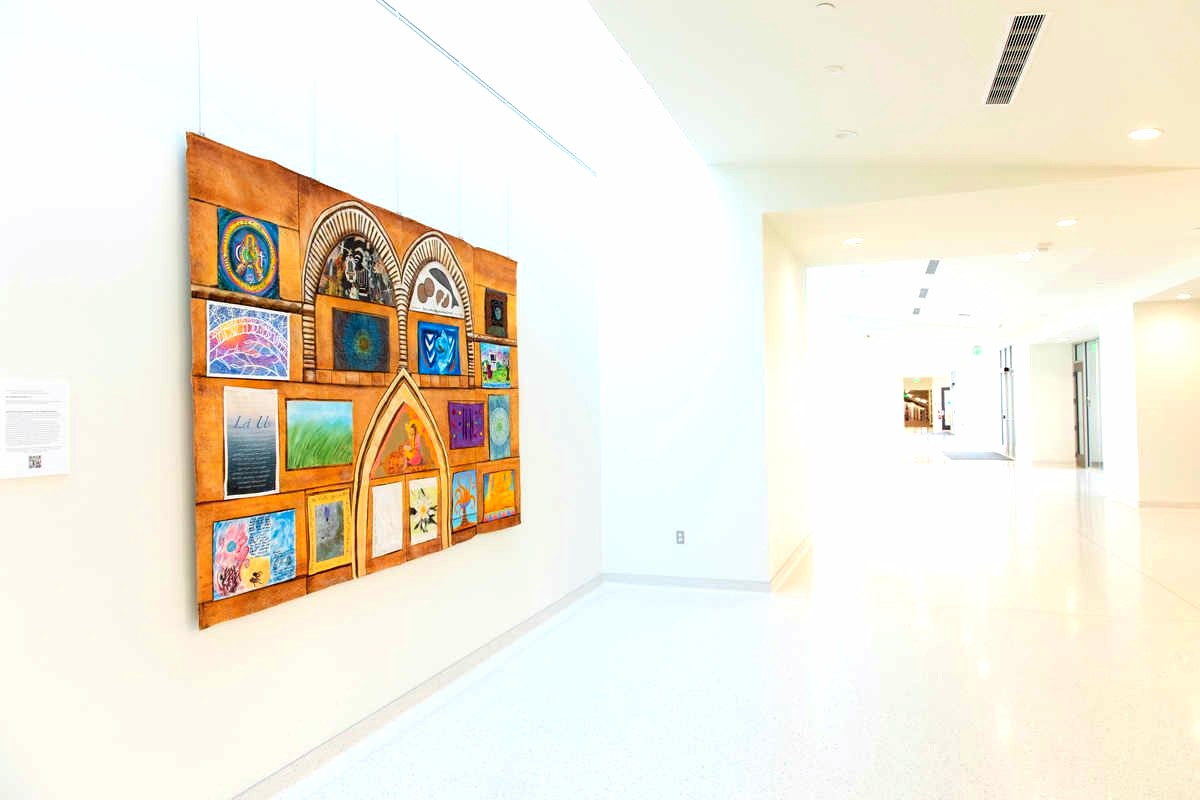Diverse faith perspectives inform the way people live, work and play together. This reality inspired St. Thomas’ inaugural Interfaith Fellows Program, which was recently awarded a prestigious national grant through the Interfaith Leadership and Religious Literacy Program of the Arthur Vining Davis Foundations.
Launching in fall 2021, the program is designed to educate and prepare interreligiously literate leaders who are informed by how lived religious practices and beliefs shape America and who engage religious diversity in service of the common good wherever their personal or professional lives lead.
“This program is really about developing the skill sets and competencies in student Interfaith Fellows to not only personally thrive and flourish, but also to lead in these spaces,” said Hans Gustafson, PhD, director of the Jay Phillips Center for Interreligious Studies and the Interfaith Fellows Program.
Funded by a $100,000 grant from the Arthur Vining Davis Foundations, the program will offer opportunities for approximately 15 student fellows over the course of the four-year pilot.
Seven St. Thomas students have been accepted into the first cohort, receiving a $2,000 stipend, funded by the grant and the Jay Phillips Center, to support their work. The recipients are second and third-year students: Consuela Collaso, Isha Gadkari, Mumtas Mohamed, Khanyilanga Ndlovu, Aiesha Osman, Delaney Sacia and Lily Stringer.
Customized learning
Over the course of two years, the fellows will complete coursework in the new theology minor in interfaith leadership, complete an internship with a community partner that engages religious diversity, and put their leadership skills into practice on campus and in the community.

Gustafson said the program follows a scholar-practitioner-leader model and the students are meant to customize the experience to their unique interests. The fellows in this first cohort represent a wide spectrum of personal and professional interests, including political, neuro and environmental sciences, economics, international studies and biology.
“If the students are interested in the health professions or the legal profession, etc., we can match them with opportunities to learn about religion in those spaces, so they get a sense of how religious and worldview diversity shapes those industries and plays a role in the professional duties of those in them,” Gustafson said.
Khanyilanga Ndlovu ’23 earned a spot in the fall 2021 cohort. A psychology and family studies double major, Ndlovu said she plans to pursue a master’s degree in clinical psychology or marriage and family therapy and sees understanding faiths as an important part of her goal to increase access to holistic health and ultimately, of her work to help people heal.
“It feels right to take the step to educate myself about different faiths and religions for my own pursuit of truth and to better serve those around me with diverse beliefs and convictions,” Ndlovu said. “Holistic health involves looking at the whole person – their physical well-being, psychological and mental, spiritual, environmental well-being and more – all in the effort of helping them heal themselves.”
Engaging religious diversity in the real world
The program’s focus beyond the academic aspects of interfaith learning is intentional, Gustafson said.
Seventy percent of Americans indicate their workplace as the top location for the most frequent interaction with people who do not share their religion, according to research from Public Religion Research Institute, a nonprofit, nonpartisan think tank focusing on research at the intersection of religion, culture and politics.
While students graduate with knowledge in their industries, they may lack the skills to engage with and understand religious or culture perspectives other than their own. Fellows will gain firsthand knowledge of the very real tensions and issues surrounding interreligious relations in Minnesota and on campus, Gustafson said.
“The program includes theoretical scholarship, but it also emphasizes practice,” Gustafson said. “The fellows will have opportunities to get off campus to engage some of this stuff and then lead. The program has significant components of leadership and professional development around which fellows can customize to meet their goals.”
Part of where that practice happens is through community engagement. Each student will spend 100 hours practicing their skills with a community partner they choose with help from St. Thomas’ Center for the Common Good. Gustafson said each fellow shares an interest in service to community.
“Students at St. Thomas tend to be very open to doing community engagement, to getting out into the community, engaging local organizations, local residents, doing hands-on experiences outside of the classroom,” Gustafson said. “I’m deeply impressed by that, and this Interfaith Fellows Program appeals to that desire, that culture we have here at St. Thomas of doing community engagement in our region.”
Partnering with a community organization that aligns with their professional goals, students may work on a fundraising or marketing campaign, logistics planning, communications, technology, storytelling or other work which engages religious diversity.
“Fellows will have opportunities to put into practice the skills they’ve learned through the program’s various components, but also will be invited to just go out and engage religious diversity in the community under the mentorship of professionals who already do it day in and day out,” Gustafson said.
Whether it’s end-of-life care or beliefs about the environment or politics, interfaith leadership and education can transform interactions in many of the spaces students will eventually work, live and play.
The Arthur Vining Davis Foundations grant, Gustafson said, is significant in growing the already impressive curricular and cocurricular interfaith opportunities at St. Thomas with the goal to be among the higher education leaders in interreligious studies and interfaith engagement.
Supporting the conviction in the St. Thomas 2025 strategic plan to increase the number of interfaith program opportunities for students, Gustafson said “interfaith understanding is core to St. Thomas because of its Catholic identity, not in spite of it.”
After the four-year grant period, the Jay Phillips Center will assess what it has learned from this program in order to consider implementing a more permanent signature Interfaith Fellows Program.
*Originally Published at Newsroom, University of St. Thomas: https://news.stthomas.edu/arthur-vining-davis-foundations-funds-st-thomas-inaugural-student-interfaith-fellowships/




No Comments